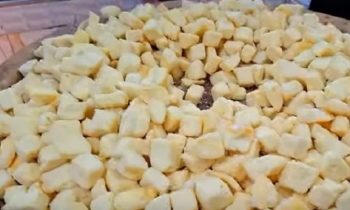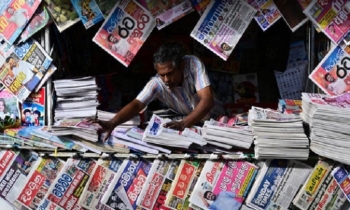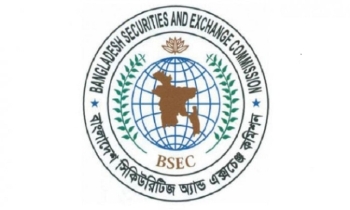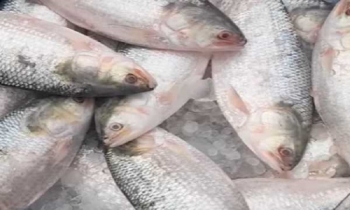Heatwave threatens productivity in livestock sector, industry leaders call for urgent plan
BI Report || BusinessInsider
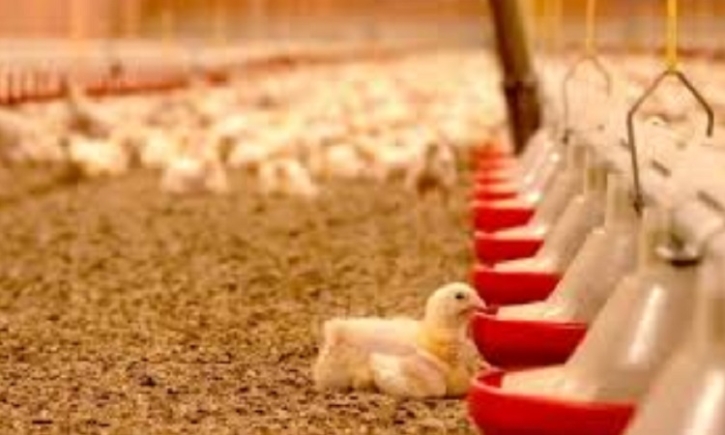
Representational photo
With a multifaceted contribution to the national economy from ensuring food security to fostering job opportunities, the significance of the livestock sector is crucial but, the recent challenges against the backdrop of the relentless heat waves, have cast a shadow over the industry's resilience and viability, according to the experts.
The livestock sector in agriculture-based Bangladesh plays a crucial role in ensuring an adequate protein supply, alleviating unemployment, and creating job opportunities for the youth, the experts have said during a discussion meeting held in Dhaka.
The livestock sector's contribution to the national economy is a 1.90 percent growth rate 3.23 percent agriculture 16.52 percent.
The total contribution to the national economy is around Tk 73,571. In direct employment, 20 percent and its partial contribution to employment is 50 percent.
Cattle farming in this industry comprises 571.43 lakh, while poultry and goat farming amounts to 4428.47 lakh.
Annual milk requirement in Bangladesh is 158.50 lakh tonnes, meat 76.08 tonnes, eggs 1806.48 lakh The number of livestock in this industry is 2.56 crore cows, 14 lakh buffaloes, 2.67 lakh goats and 56 lakh sheep.
Many cattle fattening farms, dairy farms, and bull stations for breeding were established in Bangladesh over the past few years but the loss percentage in these sectors ranges from 3-5 percent.
Poultry layer chick production declined 8 to 9 lakh per week, commercial chicken 9 crore and the percentage stands at 10 percent and the mortality stands at 5 to 8 percent.
Additionally, broiler chick production reaches 1.55 crore per week, with an annual average of 74 crore, while the mortality rate stands at 7 to 8 percent due to the extreme heatwave.
Around 140.68 lakh tonnes of milk, 87.10 lakh tonnes of meat and 2337.63 crore eggs have been produced in the sector.
The livestock and animal husbandry industry has been facing significant losses recently due to the intolerable heat waves, despite its substantial contribution to job creation in Bangladesh.
The loss in this industry is huge. Every year, 10 to 15 percent of farms are closed due to natural calamities, diseases, and not getting real value for the products produced, especially food and medicine.
Due to this 10 to 12 percent of the workforce from this industry is becoming unemployed every year and the contribution to the national economy is disrupted.
The Bangladesh Cement Sheet Manufacturers Association (BCSMA) has organised the discussion to find a way to prevent the industry from its absolute collapse.
The BCSMA thinks that the Department of Livestock, Bangladesh Livestock Research Institute, Bangladesh Poultry Industries, Central Council, Bangladesh Poultry Industries Association and Bangladesh Dairy Farmers Association can jointly take measures to protect the sector.
The Bangladesh Cement Sheet Manufacturers’ Association believes that the use of cement sheets in sheds of poultry and dairy farms will play an important role in preventing damage in the sector, along with other preventive measures.
The amount of the loss, incurred in the livestock industry, is around Tk 250 crore. The Bangladesh Animal Resources Department is assessing the extent of the damage to the farmers with their manpower and taking remedial measures.
At this time, the Department of Natural Resources believes that the use of cement sheets along with preventive measures can play an effective role in controlling loss.
Md. Emran Hossain, president of the Bangladesh Dairy Farmers Association, highlighted that milk production from crossbred cows in dairy farms has plummeted to zero, while the meat production in the beef fattening industry has halved compared to total production.
Production at every farm has declined due to the heat wave, with livestock succumbing to heatstroke, he said.
“We believe many mature and healthy cattle have died in dairy and fattening farms. Alongside implementing other protective measures for this industry against the heat wave, the utilisation of cement sheets will also yield benefits,” he said.
Md. Mohsin, secretary general of the Bangladesh Poultry Industries Association, expressed concern over the significant number of chickens dying of heatstroke in the poultry industry daily. Furthermore, egg and meat production has decreased by approximately 12 percent.
The Bangladesh Poultry Industries Association believes that utilizing cement sheets is one of the measures to safeguard the industry from the current setback.
Meanwhile, AK Fazlul Haque, acting secretary general of the Bangladesh Farm Protection National Committee, disclosed that approximately 8 to 10 lakh chickens have perished in the ongoing heat wave in the country.
“The financial loss incurred exceeds Tk 300 crore. We strongly recommend the use of cement sheets, in conjunction with all preventive measures, as one of the most effective ways to safeguard the poultry industry from the persistent heat wave,” he said.
Prof. Anwarul Haque Beg, former Dean of Animal and Veterinary Medicine of Sher-e-Bangla Agricultural University, is involved with the poultry industry.
He expressed concern, stating that the losses incurred by the industry due to the current heat wave are too significant for farmers to bear alone.
“It's crucial for all of us to rally behind the farmers to sustain this industry. I firmly believe that the current agriculture-friendly government will extend its support to the farmers in this challenging time,” he said.

